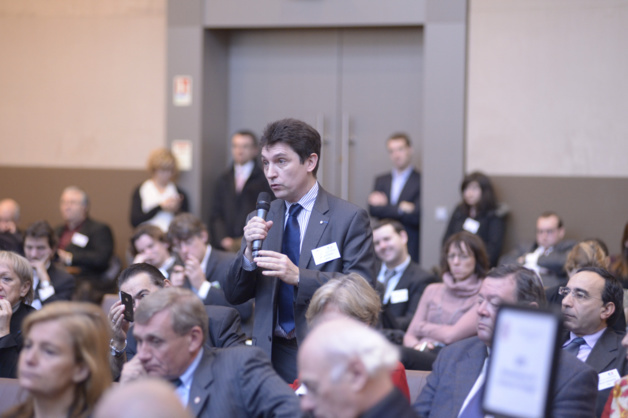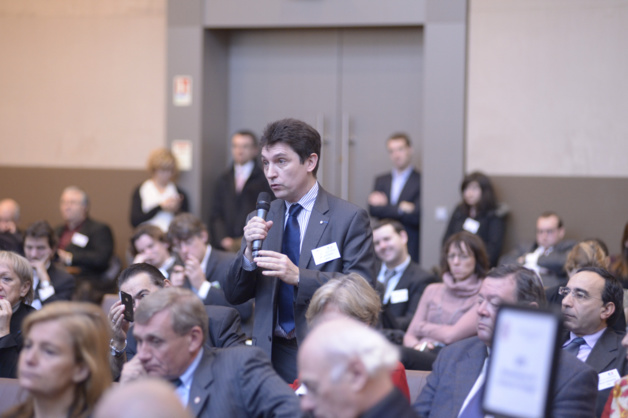
Credit DR
“I did not leave for England by choice, but out of pragmatism.” Indeed, Oliver Cadic left France for his business, his unique objective to provide his customers with the best and a more competitive service. Facing the Ministry of the Industry’s refusal to take his enquiries into account, it appeared to him that only Great Britain offered the appropriate living conditions for his company. As he declared : “without trying to be provocative, I don’t mind being branded as the first French fiscal expatriate by those who try to stigmatize rather than to understand. Leaving was the outcome of my entrepreneurial commitment, which turned into a political commitment later on”.
A Senator abroad
Living abroad is a constant challenge for an elected official. “Since I took office, I have only slept at home in Kent for three consecutive nights once. But I had time to go to Barcelona, Madrid, Copenhagen, Vilnius…” It must be said that the work is hard for a man trying to bring an outside look to French style politics. He is in a difficult situation, since each time he criticizes his home country’s politics, the government and its majority accuse him of “French bashing”. Elected seven years ago by the French population of Great Britain, he promised himself he would never publicly take sides on British politics.
Might he be considered a European, or even international, senator? Olivier Cadic claims so. But there are many obstacles. Overcoming stereotypes or being under the French political rule as an expatriate is not always easy: “the hardest thing, to tell the truth, is to go beyond the clichés: British people think that the French are arrogant. My objective is to help both countries to understand each other, because there is an important lack of understanding between the two borders of the Channel. And the main reason for that is a certain ignorance of the other, both in France and Great Britain.
An Anglo Saxon voice for the Senate
“The Scottish issue, the English issue… British people have their own issues, especially concerning the economy, where we also have ours. The difference lies in the clichés: In France, the British health system is believed to be weak. Yet, the NHS was put forward during the opening of the 2012 Olympic Games as proof that it still rightly is something the British are proud of.” Politically, Olivier Cadic presents himself as a European citizen and economically liberal. But beyond political divisions, he considers himself first and foremost a French citizen of the world, since they are, according to him, too often misunderstood and must, as a result, be represented in Parliament.
This necessity of representation requires a challenge to take up: break free from all barriers, especially in Europe. Because, according to Olivier Cadic, the main issue is to remind people that French people living abroad are still French, and that they share common values and ideals : “The French citizen living abroad often feels like a stranger : in the country he lives in, but also to his compatriots in France”, he says.
« British people have heart »
Being a French representative overseas thus allows Olivier Cadic to judge life in Britain with his French view, and France with the critical but benevolent eye of someone who no longer lives there. Thanks to this experience he considers that beyond the clichés, "British people do have a heart. Donations from individuals reach around 13 billion euros, which is about three times superior to donations by French people. The United Kingdom has been France’s first trade surplus for more than five years. I want people to know each other more in order to like each other. We must fight against the stereotypes that persist because of our cultural differences. This is why I have always been in favor of a rapprochement between the two sides of the Channel. The greatest symbol would be to realize the dream that some of us have: creating a subway between Calais and Ashford using the tunnel to create a new generation of cross-border workers."




























